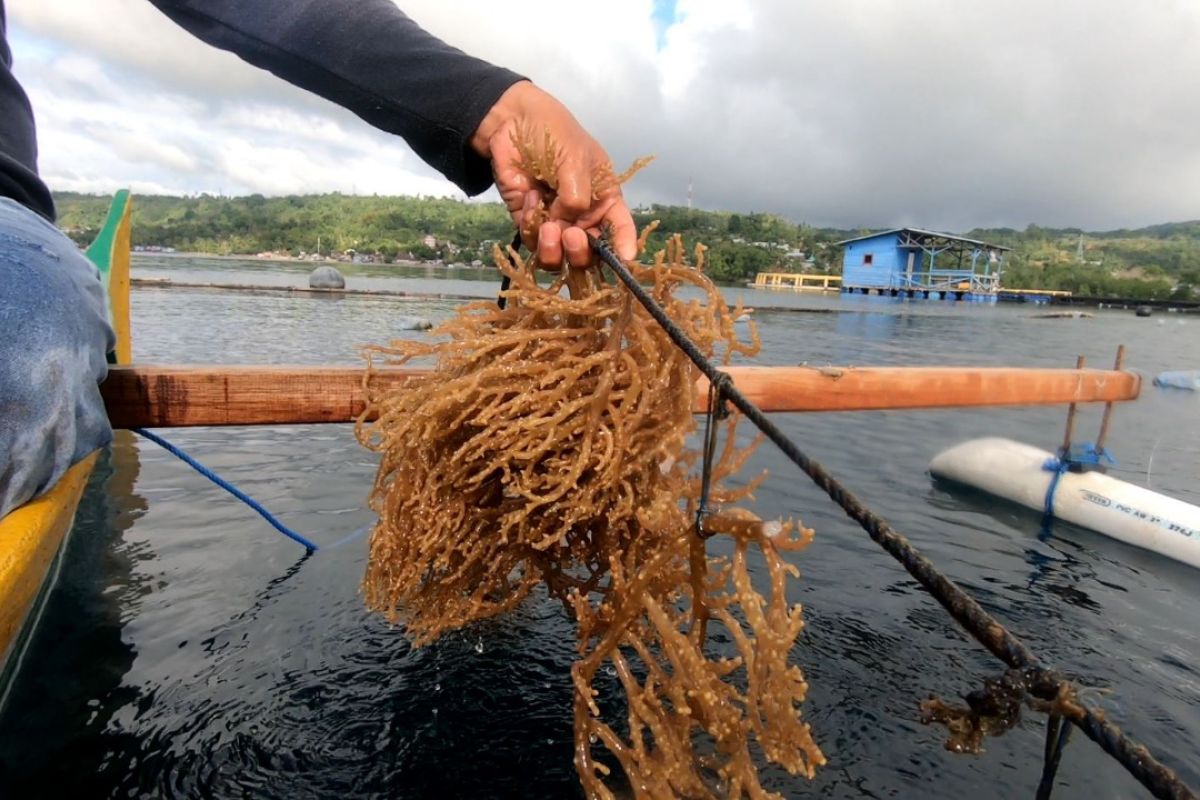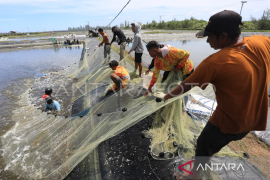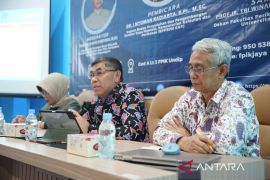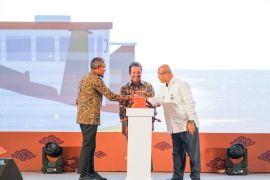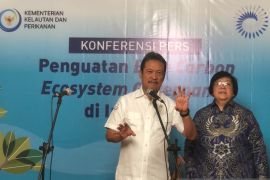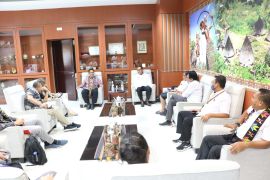"Seaweed cultivation centers will also be built at places, such as Maluku, Papua, and NTT, which entirely use seaweed seeds from tissue culture," KKP's Director General of Fisheries and Cultivation, Slamet Soebjakto, noted in statement in Jakarta, Monday.
Soebjakto explained that an engineering technique is applied for the growth of seaweed from tissue culture seedlings for the propagation of seaweed seeds by taking tissue from superior seaweed broodstock to be grown in the laboratory to produce quality seeds.
Slamet opined that the use of tissue culture seeds in seaweed center areas is projected to boost national seaweed production, which currently reaches 10.5 million tons, so that it can be increased to 12-13 million tons by 2024.
In 2020, the KKP had offered assistance through the distribution of 192 tons of seaweed seeds to cultivators across Indonesia.
Meanwhile, the KKP ministry has set a target for 2021 to distribute 200 tons of seaweed seedlings and 100 packages of seaweed seedlings.
"BPBL (Marine Aquaculture Fisheries Center) Ambon is one of the technical implementation units (UPT) of the Directorate General of Aquaculture that plays a role in developing and distributing seaweed seeds in eastern Indonesia, which in future, will be tasked with building seaweed villages that will be constructed in the Tanimbar area," Soebjakto remarked.
Apart from supporting national aquaculture production, the UPT is also expected to serve as a business incubator and driving force for the region’s economy.
Soebjakto noted that the UPT should also function as a service center and for disseminating information on technology in the regions and always be present when people are seeking solutions as proof of the government's presence in the community.
Head of BPBL Ambon, Nur Muflich Juniyanto, highlighted several advantages of seaweed seedlings from tissue culture, including the quality of the seeds that is guaranteed since they are identical to their parents, do not require large areas, and are able to produce large numbers of seeds.
"In addition, with a tissue culture production system that is applied in the laboratory, seed availability can be maintained throughout the year since it is not influenced by the climate," Juniyanto stated.
The BPBL Ambon head explained that during 2020, BPBL Ambon had handed over 40 tons of seaweed seedlings from tissue culture to the community.
Juniyanto highlighted BPBL Ambon’s commitment to supporting the success of the National Fish Barn Program in Maluku.
Related news: Flooding in Pejaten, South Jakarta, compels 28 people to flee
Related news: Flooding submerges 12 sub-districts in West Java's Bekasi District
EDITED BY INE
Translator: M Razi, Azis Kurmala
Editor: Fardah Assegaf
Copyright © ANTARA 2021
